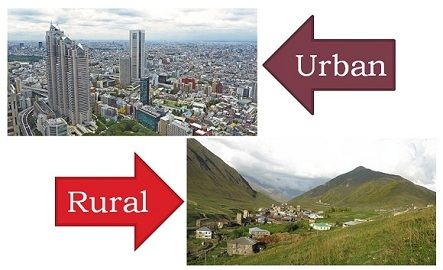A Complete Guide to Buying Land in Nigeria: 14 Recommended Legal Steps and Pitfalls to Avoid
Buying land in Nigeria can be a profitable investment, but it’s not without its challenges. From understanding legal procedures to navigating potential scams, it’s important to be well-informed to avoid financial losses or legal complications. In this guide, we’ll walk you through the entire process of buying land in Nigeria, outlining essential legal steps and potential pitfalls, so you can make a sound investment.

Understanding Land Ownership in Nigeria
Land ownership in Nigeria is governed by the Land Use Act of 1978, which gives state governments control over all land within their territories. The Act allows individuals to lease land for a period of 99 years. As a buyer, you need to understand that land ownership is not absolute, and you will need legal approval from the government to ensure your land rights are protected.
Understanding this fundamental law is the first step to avoiding future disputes. Always ensure that any land you intend to purchase has the proper documentation from the government or recognized traditional authorities.
Types of Land Available for Purchase
Before buying land, it’s essential to identify the type of land you’re dealing with. Common types include:
- Government Allocated Land: Land allocated directly by the government for development purposes.
- Family/Community Land: Land owned collectively by families or communities, often inherited and subdivided.
- Freehold Land: Land not subject to government acquisition or traditional ownership.
Knowing the type of land can significantly impact your legal obligations and costs.
Key Legal Steps to Buying Land in Nigeria
Conducting a Proper Land Search
The first step in any land transaction is conducting a land search at the relevant government office, usually the Land Registry. This ensures that the land is free from government acquisition, legal disputes, or unpaid taxes.
Getting a Land Survey
A land survey defines the boundaries of the property. Ensure that the land has been surveyed by a certified surveyor. This is important not only for legal reasons but also to avoid disputes with neighbors or encroachments.
Verifying Ownership and Documentation
Verify that the seller has the legal right to sell the land. This includes checking the Certificate of Occupancy (C of O), title deeds, and other relevant documents. Engaging a real estate lawyer can help in verifying these documents to avoid fraud.
Obtaining a Certificate of Occupancy (C of O)
A Certificate of Occupancy is an official document issued by the government granting the holder the right to occupy and use the land for a specific purpose. Without this document, your ownership may not be legally recognized.
Drafting and Signing the Deed of Assignment
The Deed of Assignment is a legal document that transfers ownership of the land from the seller to the buyer. This document must be signed by both parties and registered at the Land Registry.
Important Documents for Land Purchase in Nigeria
When buying land in Nigeria, ensure you have the following key documents:
- Certificate of Occupancy (C of O)
- Deed of Assignment
- Survey Plan
- Governor’s Consent
- Receipt of Purchase
Each of these documents plays a vital role in ensuring your legal ownership of the land.
Common Pitfalls to Avoid When Buying Land in Nigeria
Buying Land without Proper Documentation
Purchasing land without verifying documents like the Certificate of Occupancy or Survey Plan is one of the most common mistakes. Without these documents, you could face future disputes or government acquisition.
Ignoring a Land Search
Skipping the land search process could lead to buying land already under government acquisition or involved in legal disputes. Always conduct a thorough search at the Land Registry before proceeding.
Trusting Unverified Agents
Many buyers fall victim to fraudulent land agents. Always verify the credentials of any agent involved in your transaction and work with a licensed real estate professional.
The Role of Professional Help: Lawyers, Surveyors, and Agents
Working with professionals can help protect your investment. A lawyer will assist with document verification, a surveyor will outline the land’s boundaries, and a certified agent can facilitate the transaction, ensuring everything is legitimate.
Legal Fees and Other Costs Involved in Buying Land
Apart from the land purchase price, buyers must be aware of other fees, such as:
- Legal fees (for drafting and reviewing contracts)
- Survey fees (to get an accurate survey of the land)
- Stamp Duty (for registering land documents)
- Development fees (in some cases, charged by communities)
These costs can add up, so be sure to budget appropriately.
Understanding Government Land Regulations
Nigeria’s Land Use Act gives the government control over all land. Buyers need to obtain approval from the Governor of the state where the land is located before their purchase is finalized. Without this consent, the transaction is considered invalid.
Dealing with Community or Family-Owned Lands
Family or community-owned land transactions can be complicated due to multiple claimants. Ensure that all family members or community representatives agree to the sale, and get this agreement documented to avoid future disputes.
Registration and Transfer of Land Title
Registering your land title with the government is crucial for legal recognition of your ownership. This process can take several months but should not be overlooked, as unregistered land leaves you vulnerable to ownership disputes.
Dispute Resolution in Land Acquisition
Land disputes can arise for various reasons, including boundary issues or conflicting ownership claims. If disputes arise, it’s best to handle them legally through a court of law or mediation to avoid violence or loss of investment.
Importance of Due Diligence in Land Purchase
Conducting proper due diligence, such as verifying ownership, performing a land search, and involving professionals, can save you from potential legal battles or financial losses.
Challenges of Buying Land in Rural vs. Urban Areas

Land transactions in urban areas often have more rigid government regulations, while rural land may involve dealing with traditional rulers or local authorities. Understanding these differences is key to avoiding legal problems.
Environmental and Zoning Laws to Consider
Different areas in Nigeria are subject to zoning laws that dictate what can be built on the land. If you’re planning to develop the land, ensure it’s zoned for your intended purpose to avoid penalties or demolition.
Frequently Asked Questions (FAQs)
Can foreigners buy land in Nigeria?
How do I know if the land is free from government acquisition?
What is the difference between a Certificate of Occupancy (C of O) and a Deed of Assignment?
How long does it take to get a Certificate of Occupancy in Nigeria?
Are there hidden costs in buying land in Nigeria?
Is it safe to buy land in Nigeria without involving a lawyer?
Conclusion
Buying land in Nigeria can be an exciting and profitable venture, but it’s important to approach the process carefully. By following the necessary legal steps, conducting thorough due diligence, and avoiding common pitfalls, you can secure your investment and avoid costly mistakes. However, navigating the complexities of land acquisition on your own can be daunting, which is why working with an experienced real estate company is crucial.
Giwa Realty, a leading real estate company in Nigeria, specializes in helping clients find, purchase, and manage land with ease. With a team of expert lawyers, surveyors, and property agents, Giwa Realty offers end-to-end services, ensuring that every step of your land purchase is handled professionally and in compliance with Nigerian land laws. Whether you’re a first-time buyer or a seasoned investor, Giwa Realty’s reputation for trustworthiness and efficiency makes them the go-to choice for real estate services across Nigeria. Let them help you avoid the legal pitfalls and secure your investment with confidence.
For a seamless and secure land acquisition process, choose Giwa Realty—your trusted partner in Nigerian real estate.





